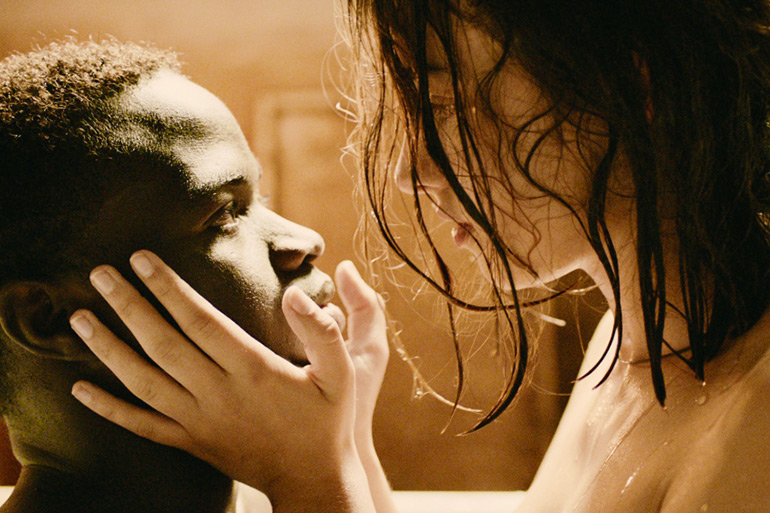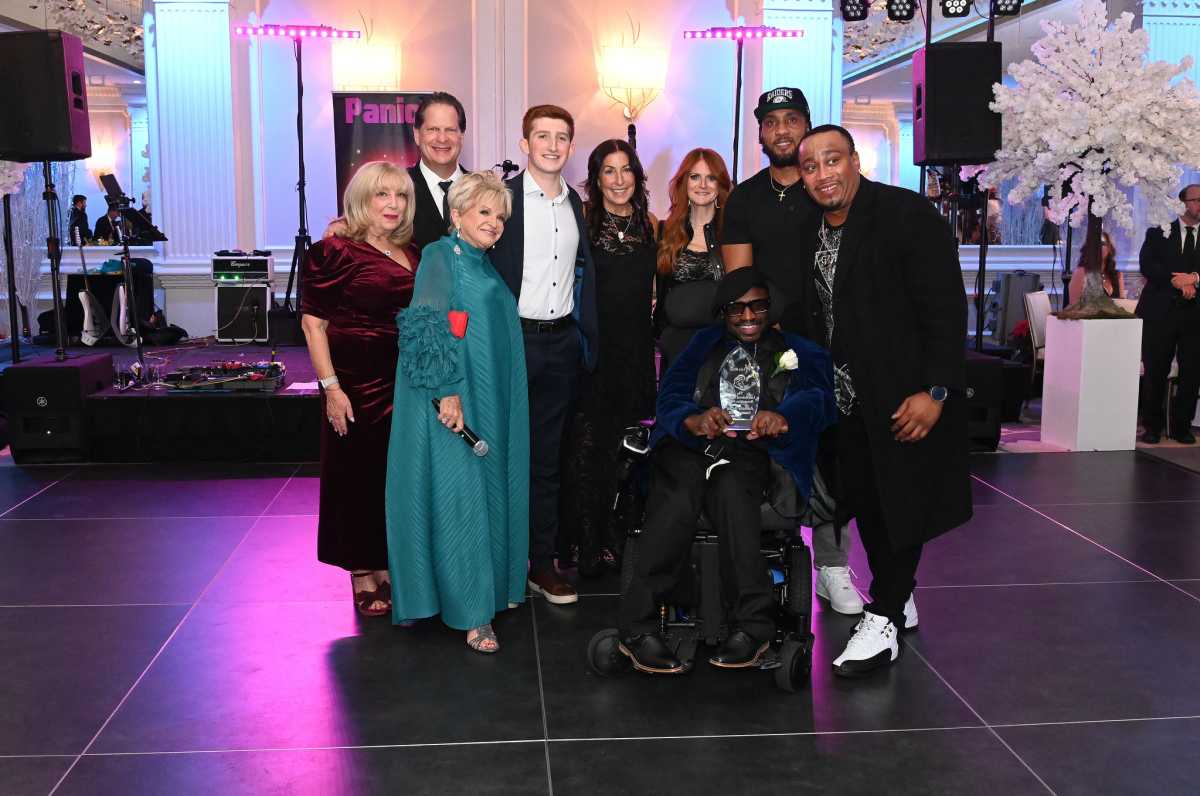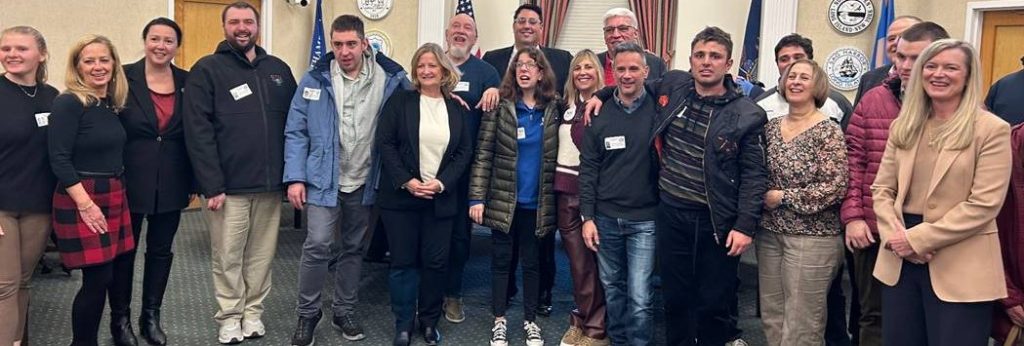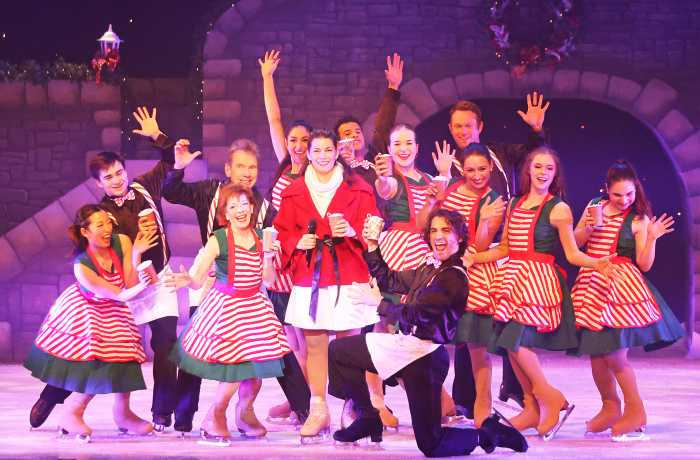Danny Peary Talks to 'Twin Flower' Writer-Director Laura Luchetti

The day before I did this interview with Laura Luchetti in New York City, her stop-motion animated short Sugarlove, about the romance between the male and female figures on top of a wedding cake, captured the prestigious Nastro d’Argento Award for Best Short Animation 2019, presented by the National Film Critics Association in her native Italy.
We were meeting to talk about her new narrative feature, Twin Flower, which screened earlier this month at the Open Road: New Italian Cinema festival at the Walter Reade Theater at Lincoln Center, so it would be another week before I got the chance to see Sugarlove and her previous, equally marvelous stop-motion short, Toilets, about a stalwart female public restroom attendant. It would be then that my suspicions, from having seen her lovely second feature, were confirmed that Luchetti is one of the most interesting emerging writer-directors in world cinema, and an admirable champion of fascinating characters that few other filmmakers would pay attention to. She is an important discovery!
From the synopsis in the press notes: “Sixteen-year-old Anna [Anastasiya Bogach] is on the run, escaping from a violent event that traumatized her. Because of what happened to her, she does not speak. Anna is pursued by Manfredi [Aniello Arena], the migrant trafficker her father used to work for. Manfredi has long been obsessed by Anna, by her strength, her innocence, her beauty. When Anna runs away from him, the man’s fury is unleashed into a pursuit like that of a wild beast on the trail of its prey. Everywhere Anna goes Manfredi is behind her. On the road, she is rescued by Basim [Kallil Kone], a 16-year-old immigrant from Ivory Coast. Together they embark on a perilous journey through the deserted lands, woods, villages and breathtaking landscapes of Sardinia. Twin Flower is the dark tale of two teens abused and damaged by life. Anna and Basim have only each other in the world. Their love becomes their strength. Together they become a single element: a Twin Flower.”
Watch the trailer:
After it played at Open Roads, Twin Flower had its North American distribution rights snapped up by Film Movement. That’s good news because it may become the rare Italian indie to get even a limited theatrical release. After having this conversation with the engaging and passionate Laura Luchetti, I definitely hope she, her feature and her shorts find a huge audience.

Danny Peary: Did you start writing Twin Flower before you cast it?
Laura Luchetti: Long before. It comes from a story that I heard years ago. I met a girl in England who had left Italy on her own at the age of 14. She came from a violent background and decided to leave. I was always fascinated that someone so young could arrive in England on her own, and that stayed with me. And her name was Anna, as is the girl in Twin Flower. Then I started researching and reading what happens to these minors—immigrants, refugees—who come to our shores.
We see the process of the arrival and of them getting rescued, but we don’t realize that thousands a month disappear into the territories of Italy. We call them “the ghosts.” For my movie, I put together Anna’s story and the stories of young immigrants who disappear. I thought, “What if two teenagers who are completely different from each other and come from opposite backgrounds—Basim is an illegal immigrant from Ivory Coast and Anna is the daughter of an Italian immigrant trafficker—meet?
What if these two kids from worlds apart, who on paper have no chance for a real relationship, come to have one out of necessity—an inevitable, love relationship?” That was the skeleton of the story that became the movie. I knew once I picked the right actors to play Basim and Anna—Kallil Kone and Anastasiya Bogach—I’d have to adapt the script for them.
DP: How Kallil and Anastasiya even know to audition for you?
LL: We were looking for our Basim and Anna in schools, bars, on the beach, everywhere in Rome and Sardinia, where I would shoot the movie. I found myself talking to young kids in the streets, getting little trinkets of information from them. Also I organized several casting sessions at rescue centers in both places. I have been studying migrations and migrants for over 15 years and these are organizations I have been a member of for many years. Organizations rescue these kids and give them a place to live and teach them Italian and help them to eventually get introduced to Italian life.
The African boys came to see me with their lawyers and tutors. I saw about 150 minors from Africa, and I heard stories you don’t want to know. Eventually I found my actor for Basim in Sardinia. When Kallil read my script, he said, “Laura, this is my story, how did you know?” In an interview he did later in Rome, he said to the journalist, “I thought she had followed me for a long time and then pretended to give me an audition when she already knew all about me.”
His story and Basim’s story are very similar. In fact, in addition to reading about immigrant children and talking to kids in the streets and at the rescue centers, I went to Save the Children and UNHR and spoke to many kids, and everywhere I found how similar all their stories are. There are so many stories about these kids that need to be told.
For Anna, I looked in schools, theater schools, places where young girls gather. We put up a sign in every school and Anastasiya saw one. She came to the audition by herself as a lark. I had worried I wouldn’t find my Anna because I was looking for something completely different. And then she came in. She was not a girl who goes to the mall every Saturday. She was like a wildcat, an alley cat, someone with street smarts who can look at you and know whether you are to be trusted. Kallil is like that too because of the journey he had taken. Both look at you and know if they can trust you.
She read her lines and we all said, “This is Anna.” She told me about her life and I discovered that she was an immigrant, too. She spoke perfect Italian with a Sardinian accent because she came to Sardinia when she was four from Ukraine. Because of what she has been through, she has a wild, furtive attitude toward life. I was looking for that and was very lucky to find it. She was 17 and turned 18 at the beginning of the shooting. That was better for us because it’s difficult to shoot with minors.
DP: You said Anastasiya didn’t take her audition seriously at first. What about Kallil?
LL: Kallil really wanted to be in the movie. He wanted to be a futbol player or an actor. The audition scene was the scene in which Kallil and Anna meet at the bus stop in the countryside. He came with all the objects that would be in that scene in his backpack. He was so prepared, with the bracelet, a cigarette, and everything else that was in the script. He blew me away. He came three times. He had arrived only five months before we started shooting from Africa, so he could speak 10 words of Italian, French, and Bambara. I told him I didn’t need him to learn lines word for word, but wanted him to be himself.

DP: I’m surprised that you had them come back for more auditions although you were already sold on them for their parts.
LL: I liked them when I met them and I gave them something to play with—and they changed the audition scene to what you see on the screen.
DP: You said earlier that you adapted the characters to fit who played them,
LL: Yes. I’m like a tailor so once I found Kallil and Anastasiya, I tailored the script for them. For instance, Kallil loves playing futbol so we made that a trait of Basim. There was less we adapted for Anastasiya, but in the script, Anna was skinny, super tall, and red-haired, sort an ethereal figure who isn’t like anyone else. Anastasyia is earthy and real, a bit of an urchin, so Anna became a strong young woman who lives in a man’s world and puts up with the harsh environment.
DP: Your leads were two strangers who ended up on screen having tremendous chemistry. How did that happen?
LL: They were young and shy and it was their first time as actors but it was also my first time directing non-actors. And I didn’t go to film school but am self-taught as a director. What helped is that I’m a mom! So they’d get to know each other in the brief time we had doing rehearsals, I asked them to do things together. For instance I asked Anastasiya to show Kallil around Cagliari, the town where she lives in Sardinia. Also I encouraged her to take him to a bar and teach him how to play foosball, which he was very excited to do because of his love for futbol.
I had no budget, so I didn’t have the luxury of a month of rehearsals or twenty takes. That meant that by the third take they had to be good because we didn’t have time or money for any more. Twelve days before we started shooting, my amazing Spanish director of photography, Ferran Paredes Rubio, arrived from Rome. He’s sort of my professional husband and we do everything together. He asked to see the rehearsal of a scene that was later cut in which both Basim and Anna have dialogue.
Afterward he came to me and said, “If you say those two are right for their parts, I trust you. But we shoot in 12 days and they are six months away from being ready.” I freaked out. Anastasiya and Kallil did the scene again in front of Ferran and they were a bit scared and didn’t know all their lines. All directors are manipulative and I had to play the fear card. I said to them, “This is not a game but a job and you both are a disgrace!
The film is relying on you and you are so shallow!” I tore into them, telling these poor kids that they were irresponsible. I said, “Go outside, sit on the stairs, and when you come back in fifteen minutes you’d better know your lines!” I was shaking and Ferran was looking at me as if I needed an exorcist. He asked what had gotten into me and I told him, “They have to bond, even if they bond over hating me.” They came back and looked at me as if I was a horrible woman, and their eyes said, “You’re now going to see what we can do!” And they were great. I don’t know what happened on those stairs, but something happened. After two weeks, I said to them, “I have to apologize for what I said, but that was the only way I could push you together.” I felt awful.
DP: You mentioned that the scene you later deleted had dialogue. I assume you didn’t make Anna mute after an early scene of violence because Anastasiya wasn’t an experienced actress.
LL: No, Anna was mute from the very first draft of the script. She “loses” her voice because of that trauma.
DP: Your movie has violence in it, but it is sweet and tender.
LL: If you say so, I will believe you. That is what I aimed for but not always what you aim for translates onto the screen. The relationship of Basim and Anna is delicate but the world around them is absolute hell. It is vile. How can you keep a flower alive in the desert? That was my thing. How do you keep a flower from drying up and wilting? It’s like there is a protective umbrella over their feelings, but still a hot wind passes by. Before I started the film, I knew I had to protect them but at the same time we need to feel there is danger everywhere around them. So if you say that came through, I’m happy.
DP: Two words come to mind when watching your movie. You mentioned the first: trust. Anna and Kallil realize they can trust no one but each other. The other word that is used throughout the film is protect. Several men say they want to protect Anna, including her murderous stalker Manfredi and her aged employer at the flower shop [Giorgio Colangeli], but Basim is the only one who can do it. And she protects him as well.
LL: Yeah. Thank you for saying this because for me the most important line in the entire film is when he hugs her and promises in French, “I will protect you.” It’s a tiny sentence that most people don’t even notice. Basim came to Italy like all the other kids to be protected but he ends up protecting somebody else. That’s our future. These are the people who will change the world and probably end up protecting us.

DP: There is a gentle scene in which Anna climbs behind Basim in a bathtub and comforts him. What is great about her action is that it comes after his being seen by her in a humiliating situation, allowing—for money—an older man to use him sexually. The expectation we have as viewers is that she’s so shocked that she’ll flee, but instead she is extra loving and understanding toward him.
LL: Thank you, thank you, thank you. It’s exactly that. You don’t know how much I had to fight to have that scene follow the other. Many people told me, “You can’t put the bathtub scene after that other scene. You are going to make Anna look horrible for being aroused after what she has seen.” It is not that! He is shattered, and she gets that. When she sees him against the wall with a man moving against him, she probably doesn’t know what is happening because she has never seen anything like that having lived with her father in a countryside house. But she senses the danger and his humiliation. She has that instinct kids have. What happens in that bathtub is sort of a christening. She hugs him and washes him. She wants Basim even more now because that is their relationship. The relationship they have is not rational or logical for some people, but for me it is.
DP: In the press notes, you talk about the “loss of innocence” being a theme of your movie. You also say that you want Anna and Basim to regain that innocence. Is that possible?
LL: We can’t reveal what happens, but paradoxically they do what I said through a very violent act involving Manfredi. The nightmare is over and they somehow take their lives back. Manfredi is himself a metaphor for the violence and abuse in the world that puts such kids in a corner. The paradox I speak of comes from something others have written that I really believe, which is: “The sin is not committing a sin, but when you think of committing a sin.” In a way, their action takes them out of their nightmare, cleanses them of the fault of sinning, and in a way helps them regain their innocence, which allows them to enter the future.
SPOILER ALERT
LL: We follow them for 95 minutes, but then we must stop because what will happen to them is not for us to know. I think this is an optimistic ending. After this, I hope there is a beautiful place for them.
END SPOILER ALERT

DP: There is a world of adults and a world of young people in this movie. It’s scary.
LL: I told the adult actors, “Your characters are the long shade projected on the kids’ world.” I trust kids more than I trust adults and they see a world I like, so I wanted to tell the story through their eyes. I like exploring the world through the gaze of adolescents.
DP: Tell me about the actor who played Manfredi. I read in the press notes that he is an ex-con.
LL: His name is Aniello Arena. Five years ago, when I was I started making this film, I saw him in a beautiful film called Reality by Matteo Garrone. I thought he was tremendous. In Rome, everyone in the industry knows each other, but I didn’t know him. I found out he was an actor in a prison theater company. When I talked to him about playing Manfredi, he said, “Laura, I’m funny guy who likes doing comedies. I’m not really sure about this character, so I’m going to have to say no.”
For me, there was nobody else. I didn’t want a famous actor but someone who was like Manfredi. I wanted real with all my actors and characters. After a week, he called me and said, “I have to tell you something. That character has never been a child. I know that man very well, so I want to play him in your film.” Even though it took five years, he was always committed to playing Manfredi and he was my only choice. His life changed and he was out on parole at the time we started shooting. I asked him to grow a beard and then dyed his hair red. Lots of people don’t recognize him in my movie, and that’s a compliment.
DP: You said you began making the film five years ago?
LL: Yes, that’s when I started the process. But I started writing it 15 years ago! You see, things haven’t changed that much! Italy’s geographical position makes it handy for everyone to come to our shores. Back then, most immigration was from Eastern Europe. There were many Albanians and Polish people—Anastasiya came from Ukraine. Later, immigrants came more from North Africa. Now it’s from Central Africa. They are so desperate in Tunisia that they jump in the sea and start swimming, despite the cold, sharks, and distance. If you’re that desperate, you deserve attention and help.
DP: Are there a lot of films being made in Italy about immigration?
LL: I guess so because that’s the only real thing happening to us. There isn’t much interesting to talk about other than that our country is changing its color and becoming richer with the new cultures coming in. There’s this massive change happening and we need to talk about it, or tell stories and make dramas, comedies, and even fairytales about it. We’re the last country in Europe having this flux of immigration. What else do we need to talk about?
DP: In the press notes, you conclude your Director’s Statement by saying this about Twin Flower: “This is the story of a dream Anna and Basim share that will help them survive even the cruelest twists of fate.” Do they actually have “a dream,” or do they just want to survive the next day?

LL: The dream is their future. The idea of having a future has been annihilated for both of them. So they dream of crossing the bridge, the woods, the river, and the road in order to have a future. After talking to so many kids from Africa and others who live in danger, I found that their dream is: “I want to have a future.” That is the dream Basim and Anna share that holds them together.
DP: I must tell you that I appreciate that you made this film with a kind heart.
LL: My sweet side is in my stop-motion animation, you see my darker side in Twin Flower. Maybe my films take longer and are more difficult to make, but what’s important is that I make them with guts and with heart.
Danny Peary has published 25 books on film and sports, including Cult Movies,Jackie Robinson in Quotes, and his newest publication with Hana Ali, Ali on Ali: Why He Said What He Said When He Said It, about the origins of her father’s most famous quotes (Workman Publishing).









